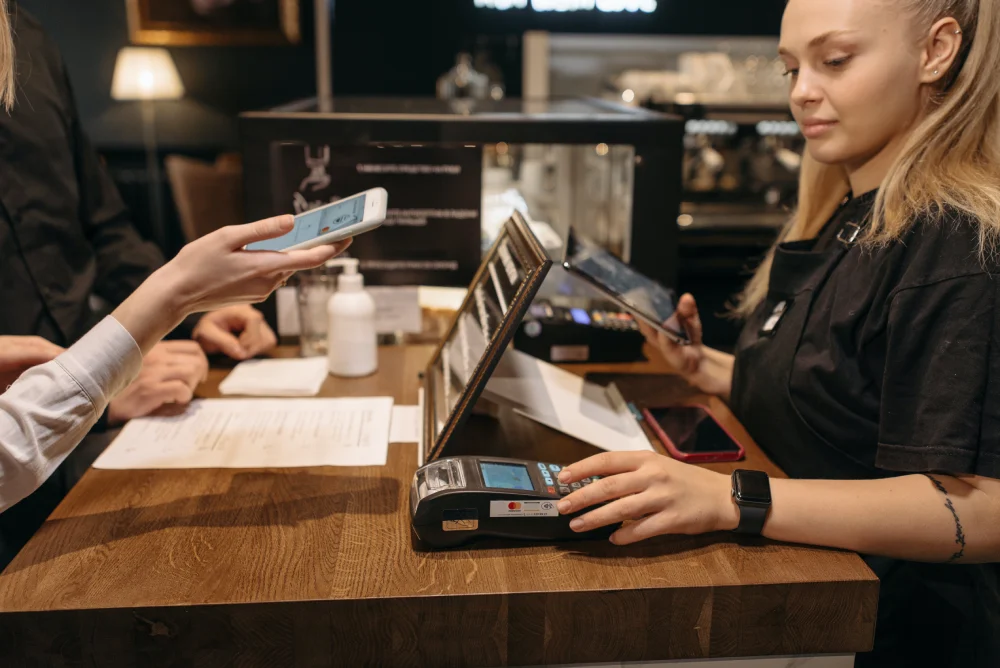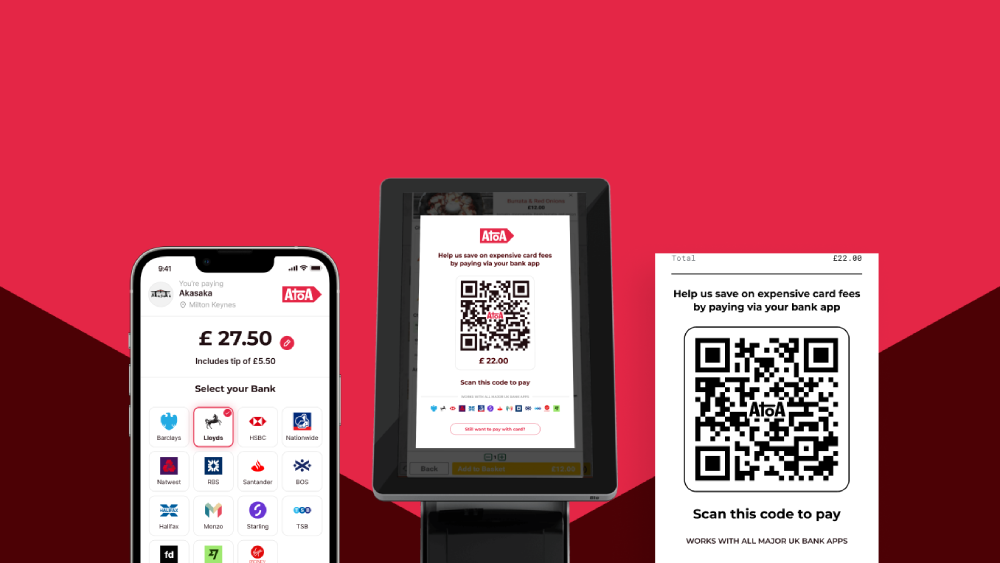Ready to get started?
Easily integrate next-generation payments and financial data into any app. Build powerful products your customers love.
Running a business is hard enough. Processing payments shouldn’t be what slows you down or eats into your margins. But with card fees climbing, chargebacks piling up, and delayed settlements, that’s exactly what’s happening for a lot of UK businesses. A 2024 report on cross-border eCommerce found that while cards are still widely used, 33% of UK consumers now prefer to pay with digital wallets like Apple Pay, Google Pay, and PayPal. People want faster, simpler ways to pay and so finding cost-effective payment solutions for your UK business has never been more important.
That’s why so many are turning to modern payment systems. Especially those leveraging the open banking technology, which lets customers pay directly from their bank account—no cards, no middlemen, and far fewer fees.
In this guide, we’ll break down what payment systems actually are, what to look for when choosing one, and which solutions are the most cost-effective for UK businesses in 2025.
What are payment systems and how do they work?
In simple terms, a payment system is the method or tech you use to get paid. Whether it’s a customer tapping their card, paying via bank transfer, or clicking a payment link, there’s a process happening behind the scenes.
That process involves:
- The payment method (card, bank transfer, mobile, etc.)
- A payment processor (which communicates with banks)
- Settlement (when the money lands in your account)
Traditional card-based systems rely on networks like Visa or Mastercard and that’s where the high fees, slow settlements, and chargeback risks come in. Newer systems, especially those built using the open banking infrastructure, cut all of that out.
Why open banking is changing the game
Open banking lets customers make secure, direct payments from their bank account to yours. It’s authorised by UK law, supported by major banks, and it’s growing fast. Close to 14 million people in the UK now use open banking-powered services.
So, why are so many businesses switching?
- Lower costs – No card networks or hidden fees
- Faster payments – Instant or same-day settlements
- No chargebacks – Payments are verified and final
- Works with banking apps customers already trust
For businesses, using open banking features means fewer fees, faster access to cash, and less admin work.
What makes a payment system cost-effective?
It’s not just about low fees. A truly cost-effective payment setup should also:
- Speed up how fast you get paid
- Reduce time spent chasing payments or reconciling
- Protect you from fraud and chargebacks
- Integrate with tools you already use, like Xero or QuickBooks
- Be easy to use for both staff and customers whether on mobile, desktop, or in person
5 cost-effective payment solutions in the UK
We’ve rounded up some of the best options for UK businesses in 2025. Each one offers a slightly different approach, depending on your size, sector, and how you prefer to get paid.
1. Atoa
Atoa Instant Bank Pay helps your business get paid in seconds—while saving up to 50% in card processing fees by using Open Banking. Customers pay directly from their UK banking app, and the money lands in your account instantly. It’s fast, fair, and secure—no more waiting days for settlements.
You can accept payments via QR code or payment links, making it easy to get paid on the spot or remotely.
Atoa also integrates with accounting tools like Xero, Quickbooks, or Sage, so customers can pay straight from their invoice. No faff, no chasing. Your finance team will love the automatic reconciliation, and the dashboard is clean, intuitive, and easy to use.
2. Crezco
Crezco is ideal for businesses that send and receive lots of invoices. It allows customers to pay using open banking technology directly from the invoice, and auto-reconciles the payment with your books.
It’s especially handy for small and mid-sized companies that send out a high volume of invoices and want to skip the hassle (and cost) of card payments or slow bank transfers. Crezco is particularly useful in industries like recruitment, construction, or consulting, where cash flow is king, and reducing manual admin is a big win.
3. SumUp
SumUp is a versatile payment solution tailored for small UK businesses. Offering portable card readers like the SumUp Air and Solo, it enables seamless acceptance of chip, contactless, and mobile wallet payments.
Beyond in-person transactions, SumUp provides tools for online payments, invoicing, and a free business account with next-day payouts, even on weekends. Whether you’re at a market stall or managing a boutique, SumUp simplifies getting paid.
4. GoCardless
GoCardless is best known for Direct Debit collections, but now also offers Instant Bank Pay, a real-time payment option. It’s ideal for businesses that already use GoCardless for recurring payments and want to add one-off transactions without changing platforms.
With strong integrations across CRMs, billing tools, and accounting software, it fits neatly into existing workflows. While not as flexible as some open banking-first providers, it’s a smart, low-effort upgrade for current users.
5. Square
Square is more than just a card processor, it’s an all-in-one payment solution for businesses of all sizes. You can take payments at the counter, on the go, or online using their hardware, POS app, or payment links.
Square also lets you send invoices, accept over-the-phone payments, and even offer buy now, pay later through Cash App Afterpay. It’s flexible and easy to set up, though fees can add up if you’re processing high volumes regularly.
Smart ways to keep payment costs down
Even the best payment tools can get expensive if not used wisely. Here are a few ways to keep things affordable:
- Offer bank transfer or QR payment options for high-value transactions
- Use SMS or link-based payments instead of buying card machines
- Compare pricing plans based on your monthly volume
- Use tools that sync with accounting software to cut down reconciliation time
In conclusion
If you’re tired of watching card fees chip away at your profits, or waiting days to get paid, now’s the time to rethink how your business handles payments.
From instant open banking solutions to flexible invoice tools and remote payment features, there’s no shortage of smart, cost-effective options out there. And the best part? Most of them are easier to set up than you think.
FAQs
What’s the cheapest way to accept payments in the UK?
Brands like Atoa that follow open banking practices are typically the most affordable, especially when you factor in no chargebacks and faster settlement.
Are open banking payments secure?
Yes. Apps and firms using open banking technology are authorised by the Financial Conduct Authority (FCA), a financial services regulatory body in the UK.
Can I still take card payments?
Many businesses use a mix of card and bank payment tools, depending on the situation. Make sure you check this detail while choosing from cost-effective payment solutions for your UK business.
What’s the best choice for invoice-heavy businesses?
Atoa and Crezco are both excellent for automating payments and reconciliations.



